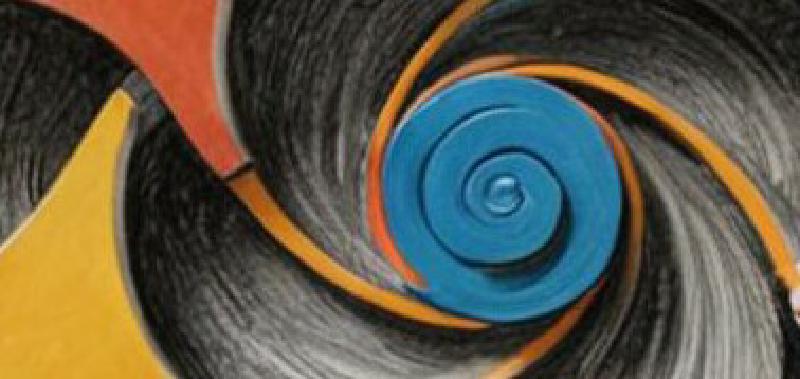The overall meaning of Bernard Stiegler’s work can be encapsulated in the image of a four-dimensional spiral, as described in his obituary1 by Gerald Moore. It’s a kind of dialectic between tools/technology on the one hand, and the human being on the other. These create and refine each other. Like the spiral, the process can be read in two directions which we can contrast as positives and negatives:
(bad!) Entropy
In thermodynamics, entropy describes the process of reaching an equilibrium where energy is equally, and therefore thinly, spread throughout a system. One alarming aspect of present human activity is the burning of stored energy in fossil fuels, a new entropic process with measurable effects on a planetary scale. In a more metaphorical sense, entropy can be used to describe loss of diversity across the planet. This includes reductions in biodiversity and also a flattening out of human cultural characteristics, loss of languages and local cultures. Applied to the psychological realm, the idea of entropy shows up as a broad proletarianisation of the human, as more and more of our skills and knowledge are incorporated into the technology. Stiegler coined the term anthropy to refer to the processes caused by our urban-industrial civilisation.
the opposite is Negentropy
Stiegler uses the opposite term, negative entropy, to describe a desirable dynamic where biodiveristy flourishes, communities direct the economy and individuals develop themselves through learning and reason. He also coins the term “neganthropy” as a way to demonstrate that the constructive and creative forces could be applied to processes in society. His last book “Bifurcation”2 is an attempt to set out what it would take for humanity to move in this new “neganthropic” direction.
my conclusions
It’s important to make clear that life, or human society, still obeys the second law of thermodynamics. Our planet is plainly not a closed system since it is constantly being bombarded with radiation. Maybe the solar system as a whole is a nearly closed energy system. It has a very hot spot - the sun, (radiative temperature of nearly 6,000°C) which will eventually cool, and the energy from it will spread out, leaving just cold, inert rocks and dust. Physics calls this “heat death” - the situation where no temperature differences remain. No further reactions or interactions can happen.
This doesn’t mean that we should abandon the metaphor of entropy to talk about the loss of structure in nature and the human psyche. In my view, it’s a useful way to analyse the harmful effects of utopian “market economics” in combination with the power of giant tech companies, and aggressive nation-states. These tend to regard everything, from fossil fuels to human desires, as resources, available for extraction and exploitation without limit.
The idea of entropy serves to identify the fundamental problem… (which is that the laws of nature impose limits) To be “neganthropic” means to work with the flows of nature and culture to create resources rather than burn them up.
-
this pdf obituary provides a good introduction to Stiegler’s life and work ↩︎
-
available as a pdf download here: http://www.openhumanitiespress.org/books/titles/bifurcate/ ↩︎
